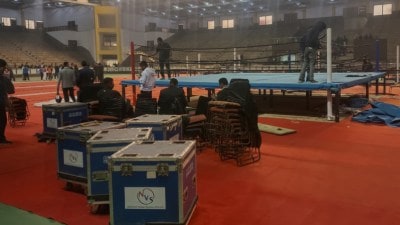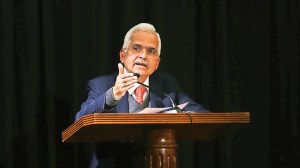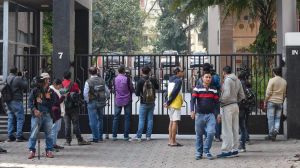Quotas unlimited
From politicians, it may have come as no extraordinary proposition. Coming from an official agency of the stature of the National Commission...

From politicians, it may have come as no extraordinary proposition. Coming from an official agency of the stature of the National Commission on Scheduled Castes and Scheduled Tribes, however, the proposal not only compels notice but calls for a clear rejection before it does any serious damage. The commission8217;s demand for extension of reservations for the SCs and STs to hitherto quota-free areas of employment 8212; the armed forces, the judiciary, scientific establishments, and private enterprises 8212; deserves such rejection all the more for the damage it can do to the cause of the dalits themselves. This is a cause that has remained above controversy all these years. The statutory reservations for the socially most handicapped sections have continued to be a matter of national consensus, and were hardly under threat even at the height of the anti-Mandal agitation. Union Home Minister L.K. Advani has just spoken for the country as a whole in ruling out any review of the Constitution in this regard andrecognising these reservations as part of the statute8217;s quot;basic structurequot;. Emphatically, not so is the extension envisaged by the commission.
If the idea of the quota8217;s extension to the armed forces was rejected outright by a dalit leader of such distinction as Jagjivan Ram when he was Defence Minister, it was not without reason. Liberties with the principles and criteria of merit and performance were, and are, not conceivable when the stake was, and is, nothing less than the country8217;s security. Quotas, clearly, could not be more out of place, either, in an institution charged not only with interpreting the Constitution but upholding the law of the land and, more importantly, the rule of law. Courts of law cannot command the same respect if the caste composition of benches is prescribed, as such a practice cannot but encourage unflattering presumptions about influences on individual judges. Similarly incompatible should be the quota system with the very spirit that should guide the working ofscientific institutions. And, the system cannot be extended to the private sector without making a mockery of the economic liberalisation and reforms that every section of the political spectrum claims to espouse, without imposing a fresh constraint on the creation of a more free market.
This, evidently, is no way to quot;social justicequot; for the disadvantaged or quot;empowermentquot; for the downtrodden. Quite the contrary. There is a distinct danger of the demand leading to an escalation of the clamour by the politically better organised quot;backward classesquot; for similar extension of quota benefits to them, to which the dalits have little reason, from their bitter experience, to look forward. The cause of the dalits will be far better served by educating, equipping and enabling them to engage in a pursuit of equal opportunities. Nothing can be a greater social injustice than to make these doubly handicapped sections seem a heavier burden for the rest of the country to bear.
- 01
- 02
- 03
- 04
- 05































